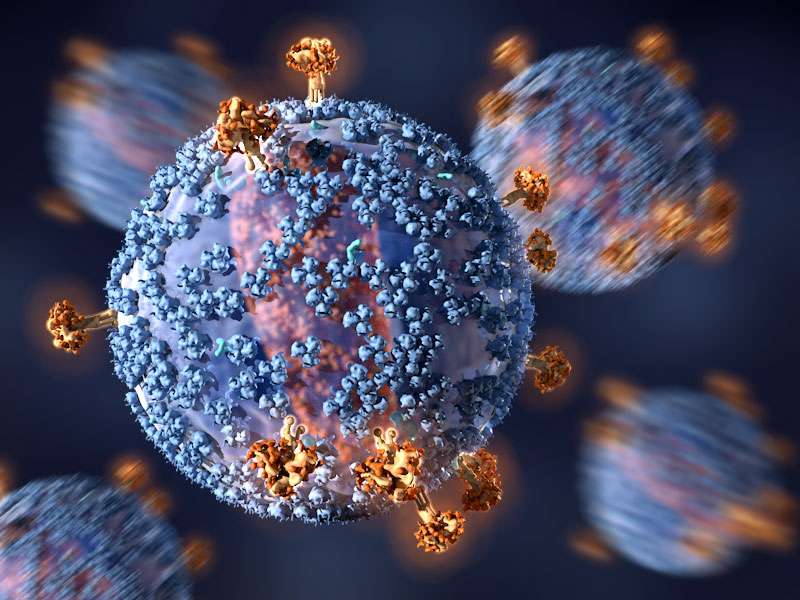Host genetics played a role in vaccine efficacy in the RV144 HIV vaccine trial

New findings published today in the journal Science Translational Medicine show that host genetics played a role in protection against HIV infection in the landmark RV144 vaccine trial conducted in Thailand.
Researchers at the U.S. Military HIV Research Program (MHRP) tested whether specific variants of immune response genes called HLA were associated with greater protection against the virus.
"We found that antibody responses correlated with increased or decreased risk of acquiring HIV only in the presence of specific host HLA alleles," said senior author Dr. Rasmi Thomas. By identifying this specific allele, or gene variation, researchers hope to more clearly determine the mechanism of protection.
Led by the US Army, the RV144 trial is the only HIV vaccine trial to show efficacy in preventing HIV-1 infection over the course of 42 months. Since researchers can compare data from those protected against HIV to those who were not, RV144 follow-on studies have advanced the understanding of HIV vaccine-induced protective immune responses. Two immune correlates of risk were identified previously, and subsequent studies have analyzed both viral and host genetics for further insights into how the vaccine worked.
HLA class II molecules play an important role in antibody response, so MHRP researchers tested variation in these genes for interactions with the two vaccine-induced correlates of risk identified in RV144. This study showed that particular HLA class II genes modulated the quantity and quality of vaccine-induced antibody responses to affect HIV acquisition and vaccine efficacy.
According to MHRP Director COL Nelson Michael, "This study confirms the importance of host genetics to the interpretation of correlates of protection of HIV vaccines and informs approaches to develop more effective next generation products."
More information: HLA class II genes modulate vaccine-induced antibody responses to affect HIV-1 acquisition, Science Translational Medicine , stm.sciencemag.org/lookup/doi/ … scitranslmed.aab4005
S. Rerks-Ngarm et al., Vaccination with ALVAC and AIDSVAX to Prevent HIV-1 Infection in Thailand. NEJM DOI: 10.1056/NEJMoa0908492 (2009).
BF Haynes et al. Immune correlates analysis of the ALVAC-AIDSVAX HIV-1 vaccine efficacy trial. NEJM DOI: 10.1056/NEJMoa1113425 (2012).


















